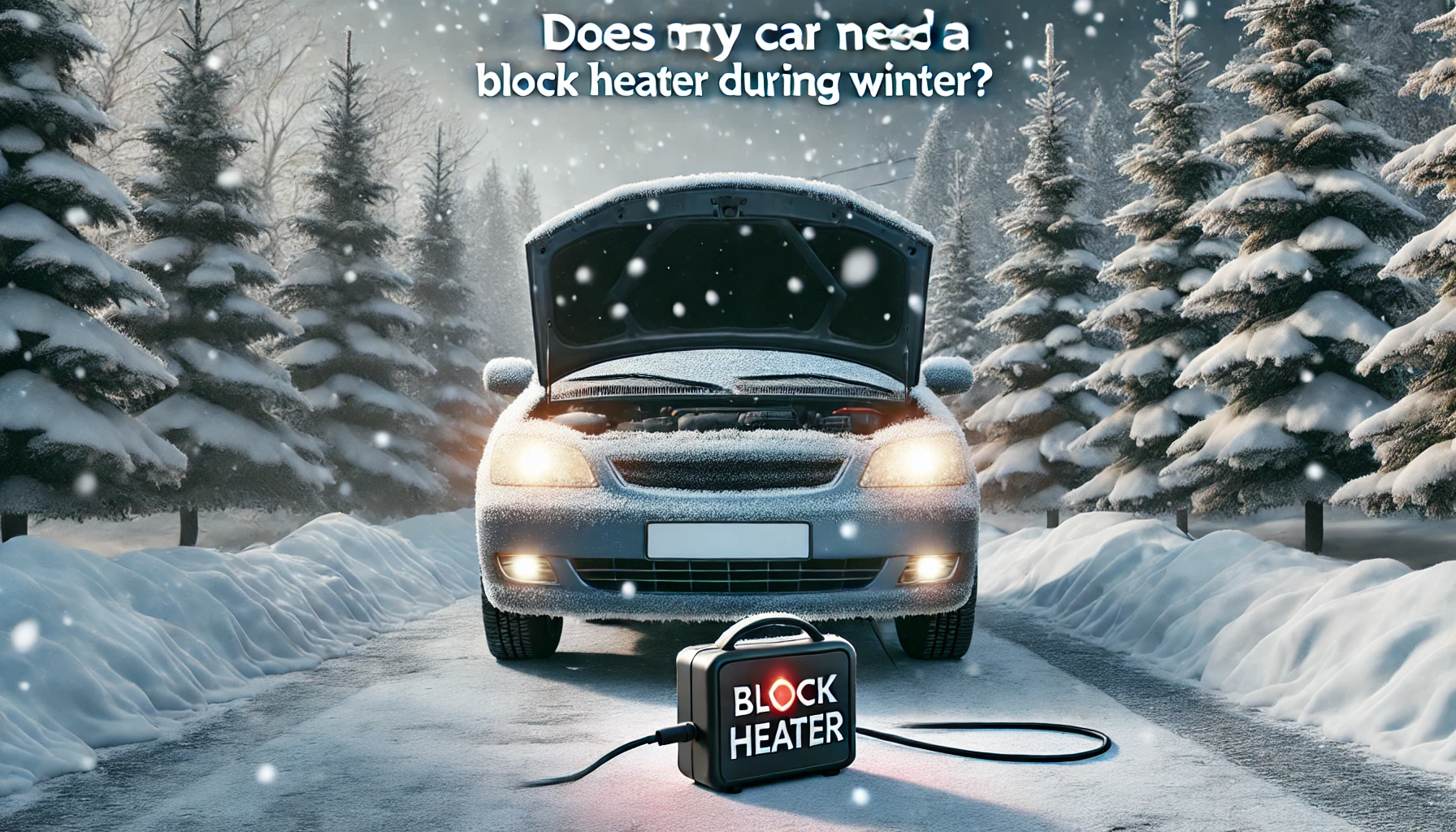Winter can be harsh on vehicles, especially in Canada where temperatures can drop significantly. A block heater can be an essential tool to ensure your car starts smoothly and runs efficiently in cold weather. This guide will explain what a block heater is, how it works, and whether your car needs one during winter.
What is a Block Heater?
A block heater is an electric heater installed in your vehicle’s engine block. Its primary purpose is to warm up the engine and its fluids before you start the car. By doing so, it reduces the strain on the engine during cold starts, ensuring smoother operation and reducing wear and tear.
Types of Block Heaters
- Engine Block Heaters: Installed directly into the engine block, heating the coolant and, subsequently, the engine.
- Oil Pan Heaters: Attached to the oil pan, these heaters warm the engine oil to reduce viscosity.
- Inline Coolant Heaters: Installed in the coolant hose, these heaters warm the coolant as it circulates through the engine.
How Does a Block Heater Work?
A block heater uses electricity to heat a small element inside the engine block. When plugged in, the heater warms the engine’s coolant, which circulates through the engine, raising the temperature of the entire engine block. This process helps the engine reach optimal operating temperature faster, even in extremely cold conditions.
Benefits of Using a Block Heater
- Easier Starts: Warms the engine, making it easier to start in cold weather.
- Reduced Engine Wear: Reduces the stress on engine components during cold starts, prolonging engine life.
- Improved Fuel Efficiency: Helps the engine reach its optimal temperature quickly, reducing fuel consumption.
- Lower Emissions: Reduces the amount of unburned fuel and emissions during cold starts.
Do You Need a Block Heater?
Whether you need a block heater depends on various factors, including your location, the type of vehicle you drive, and how frequently you use your car during winter.
Climate Considerations
In regions where temperatures regularly drop below -15°C (5°F), a block heater is highly recommended. This includes most parts of Canada, particularly the Prairie provinces and northern regions where extreme cold is common.
Vehicle Considerations
- Older Vehicles: Older cars, especially those with carbureted engines, benefit significantly from block heaters as they are more susceptible to cold weather issues.
- Diesel Engines: Diesel engines generally require block heaters because diesel fuel can gel in extremely cold temperatures, making the engine difficult to start.
- Modern Vehicles: Many modern vehicles are designed to handle cold starts better, but a block heater can still be beneficial, especially in severe winter conditions.
Usage Patterns
If you park your car outside overnight or in an unheated garage, a block heater can make a significant difference. For those who need reliable starts for early morning commutes or frequent short trips, a block heater is a wise investment.
How to Use a Block Heater
Installation
Block heaters can be installed by a professional mechanic or at a dealership. Some vehicles come with factory-installed block heaters, while others may require aftermarket installation.
Usage Tips
- Timing: Plug in your block heater about two to three hours before you plan to start your car. Using a timer can help automate this process and save energy.
- Safety: Ensure the extension cord used for the block heater is rated for outdoor use and is in good condition to avoid electrical hazards.
- Placement: Park your car in a sheltered area, if possible, to reduce the impact of wind chill and cold temperatures.
Alternatives to Block Heaters
If installing a block heater is not feasible, consider these alternatives:
- Battery Warmers: Keeps the battery warm, ensuring it has enough power to start the engine.
- Engine Blankets: Insulated blankets that cover the engine, retaining heat and making cold starts easier.
- Oil Heaters: Devices that warm the engine oil, reducing its viscosity and easing cold starts.
To Use a Block Heater, or to Not use a Block Heater
A block heater can be a crucial accessory for your vehicle during Canadian winters, especially in regions with extremely low temperatures. It helps ensure easier starts, reduces engine wear, improves fuel efficiency, and lowers emissions. Whether you need a block heater depends on your local climate, vehicle type, and usage patterns. Installing and using a block heater properly can make winter driving more reliable and less stressful.
Note: Always consult your vehicle’s manual and a professional mechanic to determine the best type of block heater for your car and ensure proper installation and usage.

